Story behind this traditional recipe:
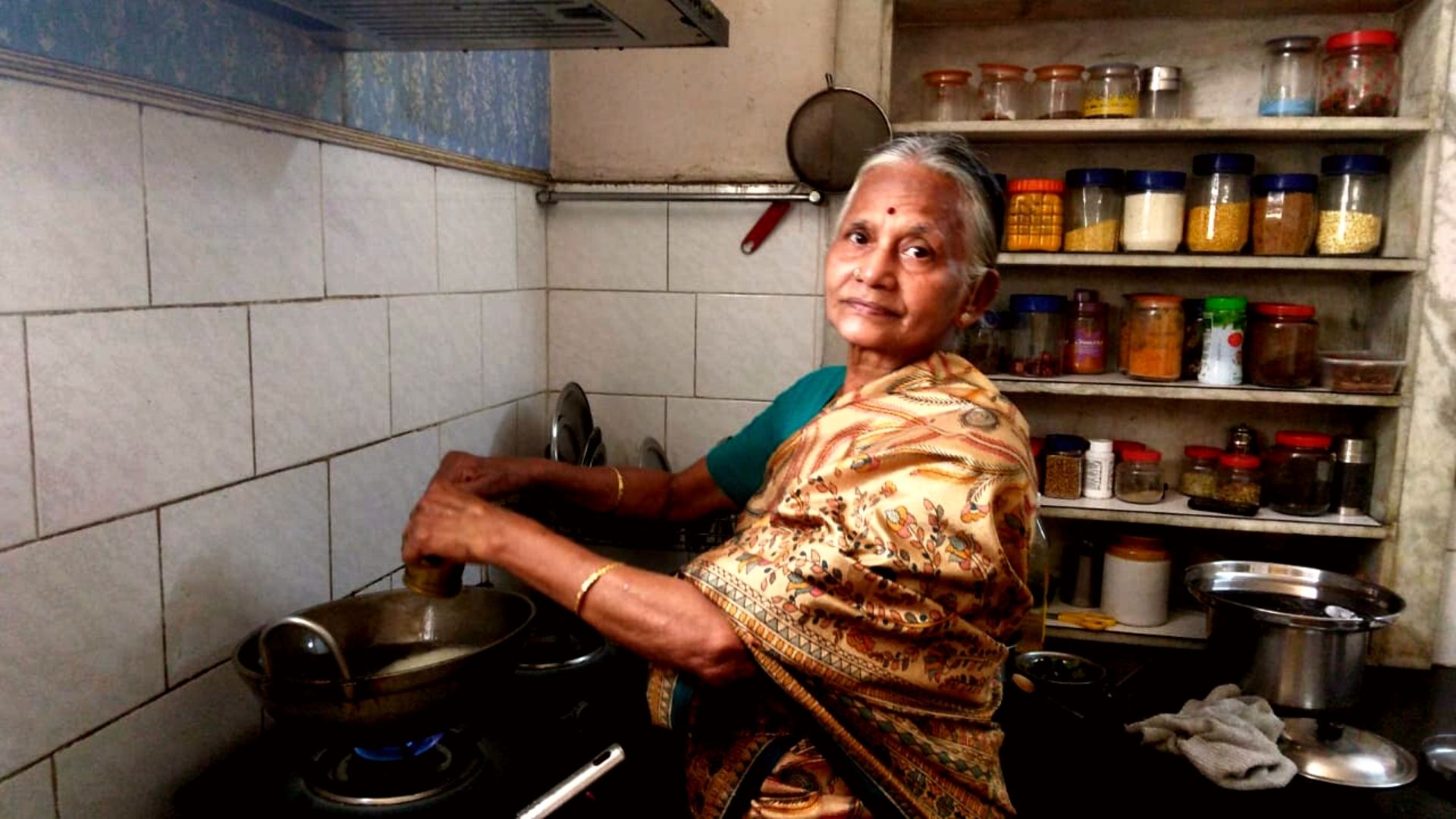 The trading community is known for its numerous food and snack preparations. These traders who speak Telugu were known to live in guilds throughout the southern part of India. They would build a community center along with a shrine for their deity, Sri Vasavi Kannika Parameshwari. This deity is believed to be an incarnation of the consort of Shiva - Parvathi. The traders are known as Chettys in plural and Chetty in singular. They are pure vegetarians and are known to be god fearing. The trade practices of this group of Telugu speaking merchants have added to the entrepreneurial spirit of our country. They are known as Arya Vaisyas, as per the Varnashrama Dharma. The Arya Vaisyas are known as Komatis(Komati-singular). They were predominantly living on the banks of river godavari and were supposed to preserve cows as part of their lifestyle. These merchants and their families have been known to be peaceful and nonviolent. They contributed towards the wellbeing of the society by indulging in charity and public service. The rulers of the yonder era trusted the acumen and business principles of the Komatis.
The trading community is known for its numerous food and snack preparations. These traders who speak Telugu were known to live in guilds throughout the southern part of India. They would build a community center along with a shrine for their deity, Sri Vasavi Kannika Parameshwari. This deity is believed to be an incarnation of the consort of Shiva - Parvathi. The traders are known as Chettys in plural and Chetty in singular. They are pure vegetarians and are known to be god fearing. The trade practices of this group of Telugu speaking merchants have added to the entrepreneurial spirit of our country. They are known as Arya Vaisyas, as per the Varnashrama Dharma. The Arya Vaisyas are known as Komatis(Komati-singular). They were predominantly living on the banks of river godavari and were supposed to preserve cows as part of their lifestyle. These merchants and their families have been known to be peaceful and nonviolent. They contributed towards the wellbeing of the society by indulging in charity and public service. The rulers of the yonder era trusted the acumen and business principles of the Komatis.
The Komatis were known for a number of culinary innovations. This ensured a steady supply of numerous recipes over the centuries. An encyclopedia of the Komati recipes would add to the flavors of India. This recipe, Perugu Pealigalu, has been preserved and made popular by the families that have been served by the freelance cook, Jeeva. This extraordinary cook has been serving a dozen houses as a freelancer over the last forty years and has been successfully transferring her culinary expertise to the community. She had picked up the fine art from Lalita Bai Krishnan, the first daughter-in-law of the famous merchant prince, Vysya Bhushanam P. A. Raju Chettiar.
P. A. Raju Chettiar and his huge joint family used to live in a huge mansion on Vysial Street in Coimbatore. This merchant prince had put Coimbatore on the Jewellery map of the world.
His birthday, the 28th of January is being celebrated as the jewelers day in India.
Ingredients:
Raw rice powder(Arisi maavu) - Five glasses
Urad Dhal Powder(Ulundhu maavu) - 1 glass
Curd - 3 glasses
Lime - 1
Salt - as required
Green chilli - 25 nos. (5 nos. Per glass of raw rice)
Water - as required
Cooking oil for deep frying
Procedure:
Mix the raw rice powder, urad dhal powder, curd and the required amount of salt in a large bowl.
Grind the chillies into a smooth paste and mix this with the existing rice dhal mixture.
Squeeze the lime, extract the juice and add it to this mixture.
Mix all this thoroughly and add water to the same.
Mix everything to a uniform consistency there after. Kindly ensure that this smooth mixture can possibly be squeezed through a murukku maker.
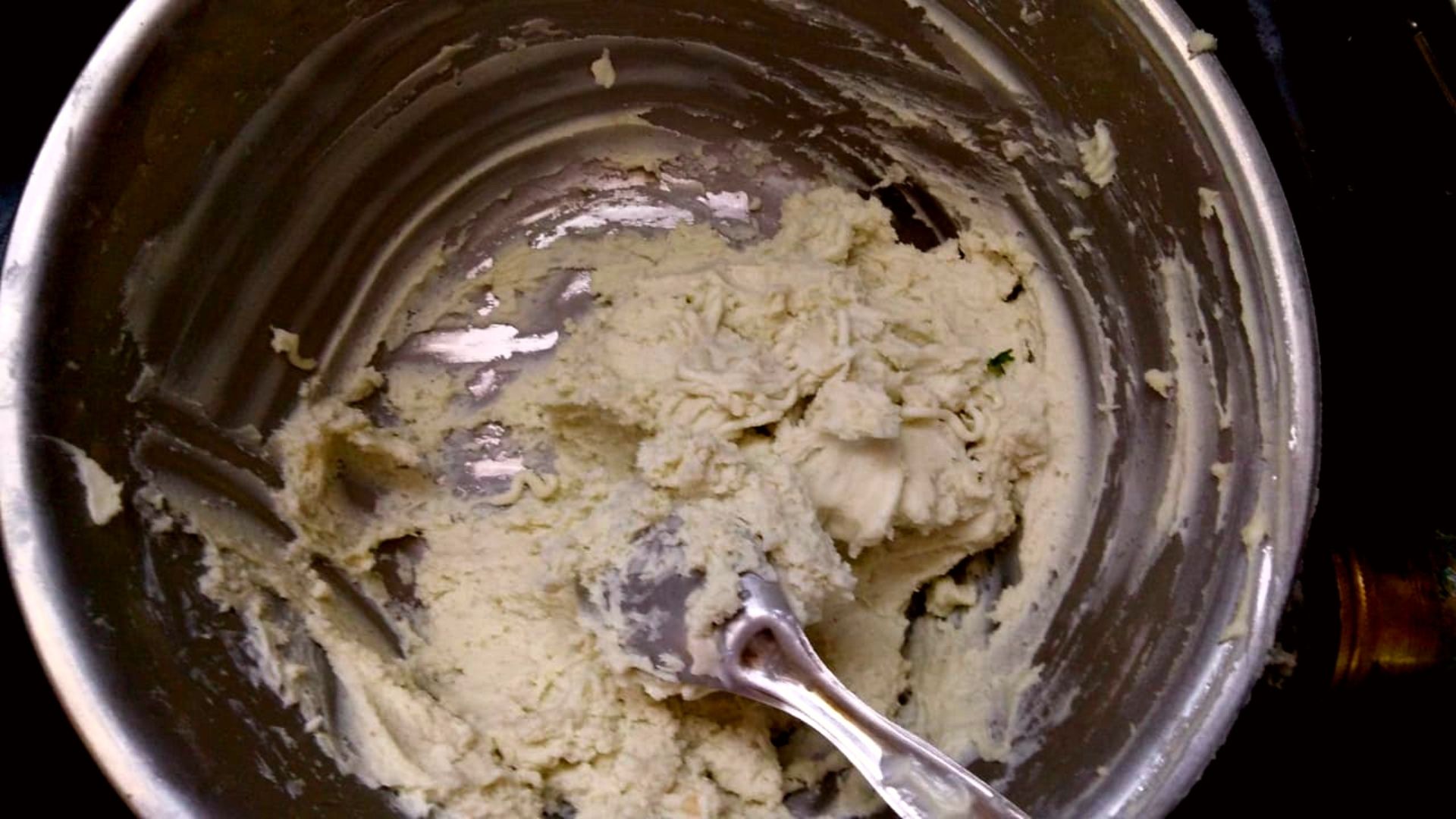
Heat the oil in a wok, wait for the oil to become hot and then take two ladles of it in order to add it to the murukku mixture.
Mix this content once again.
Lower the flame, before filling the murukku press with the prepared mixture.
Squeeze the murukku press into the oil in a circular motion over a few seconds.
Wait for the squeezed stuff to turn golden, remove it from the oil and strain the excess oil with the aid of a tissue paper.
Repeat the same procedure thereafter.
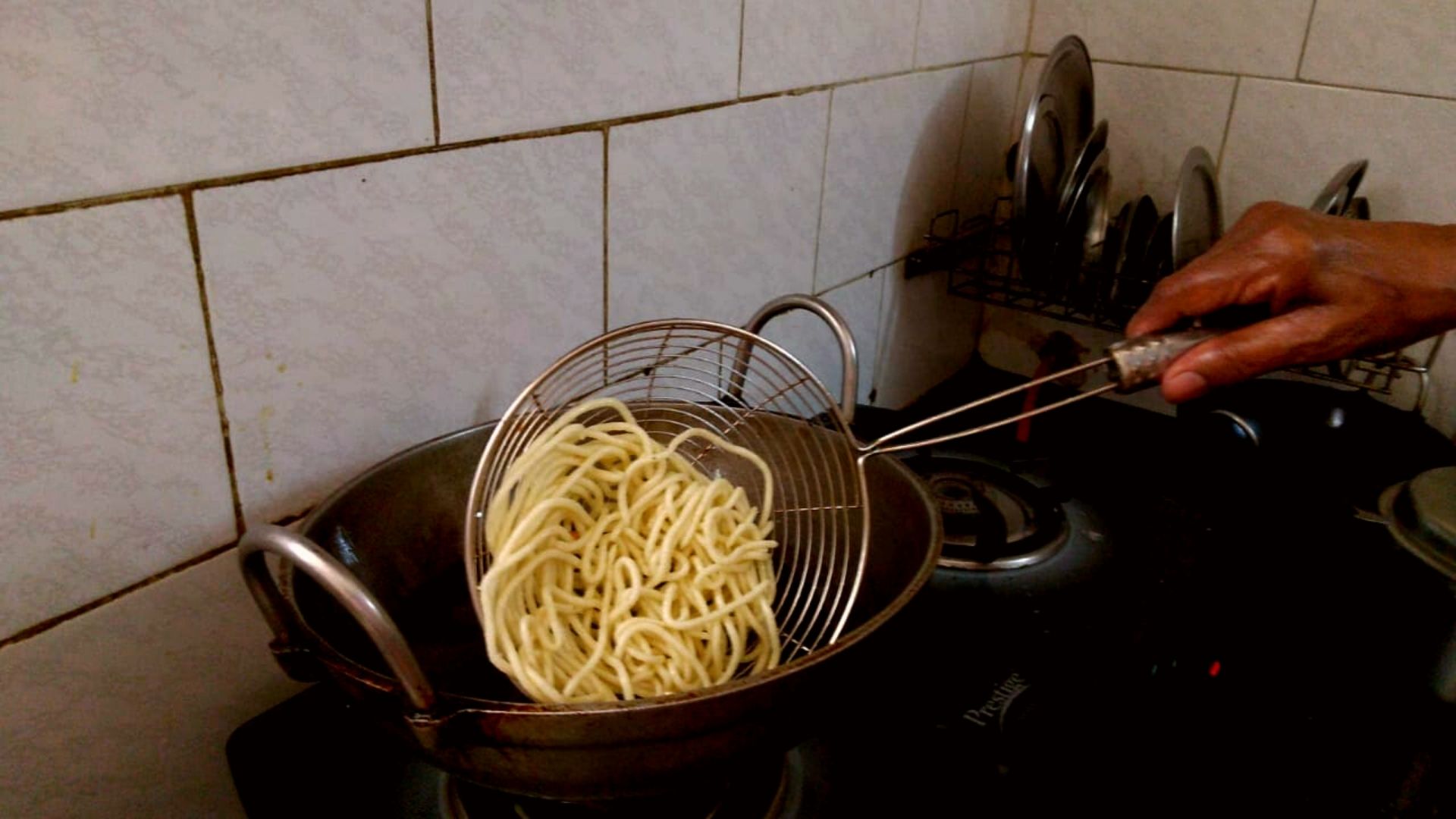
A strainer should also be used alongside.
It can be eater hot, or it can be stored in an air take container for consumption within a period of one week.
Variant - Methani perugu paeligalu (Semi-cooked)
This semi cooked stuff is a delicacy.
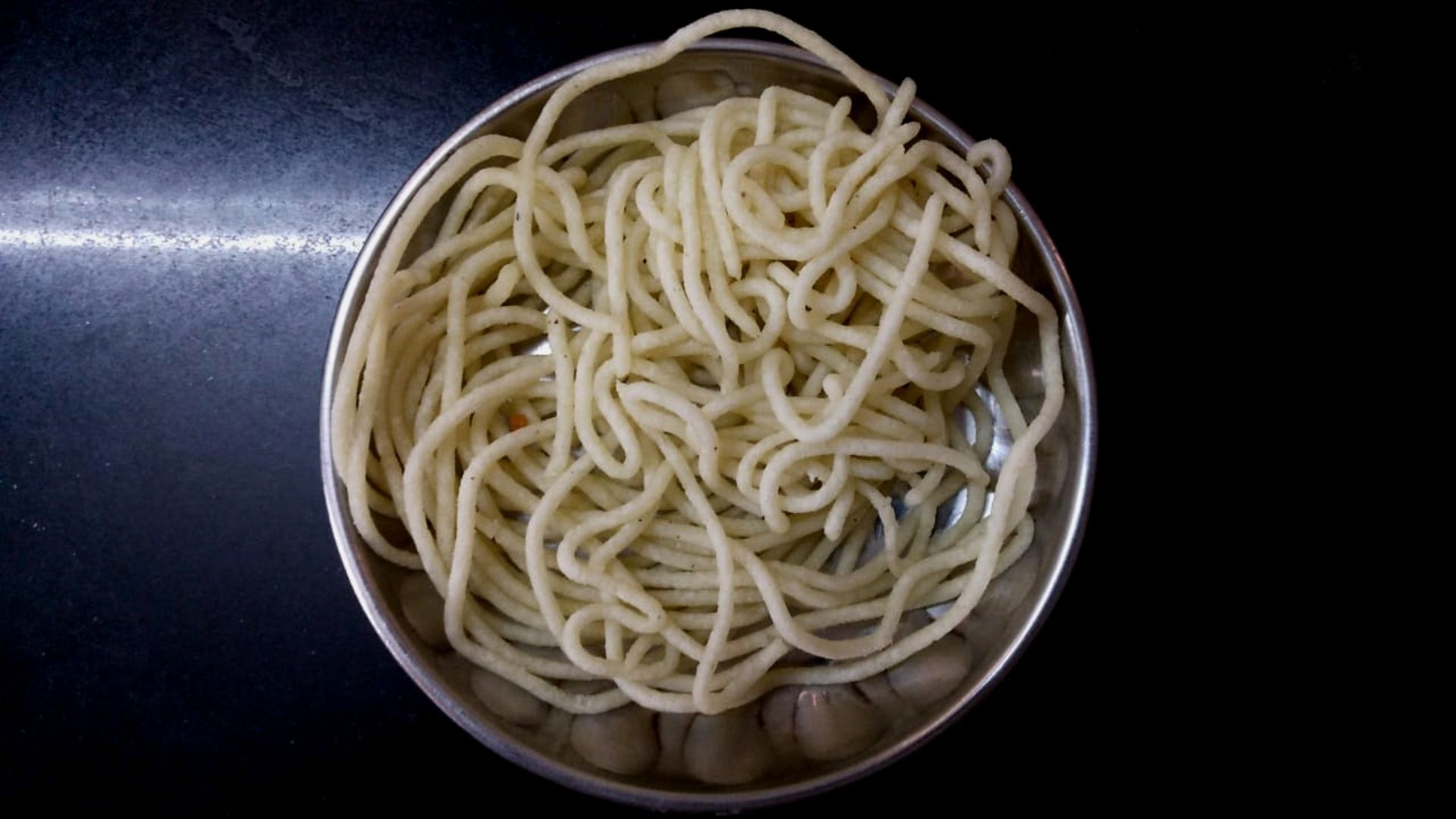
The mixture and the preparation are the same. However, the pressed stuff is pulled out of the oil before it gets deeply fried. It is just enough if it is cooked. The outcome is a smooth and delicious soggy perugu paeligalu. This should be eaten while it is hot.
Credit: Recipe from Jeeva.
NEXT ARTICLE

A Culinary Awakening in Punjab: A Journey Through Flavors and Memories In my early days in the Air Force, I was a lanky figure—five feet ten, weighin...
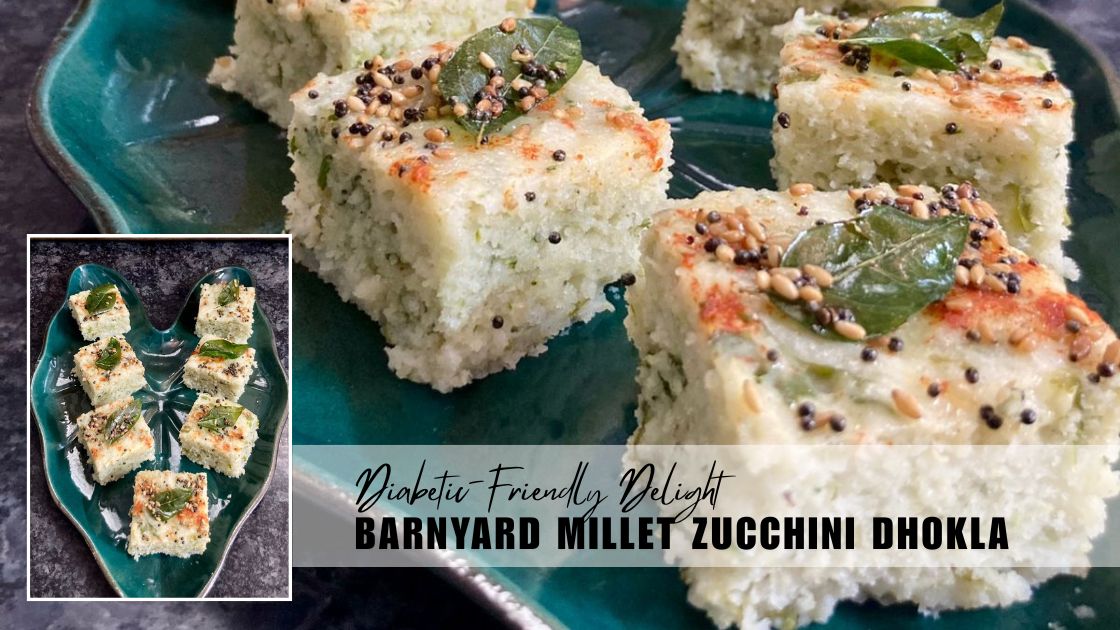
Barnyard Millet Zucchini Dhokla is a wholesome, low-GI snack ideal for people managing diabetes. Made with barnyard millet flour—a gluten-free grain r...